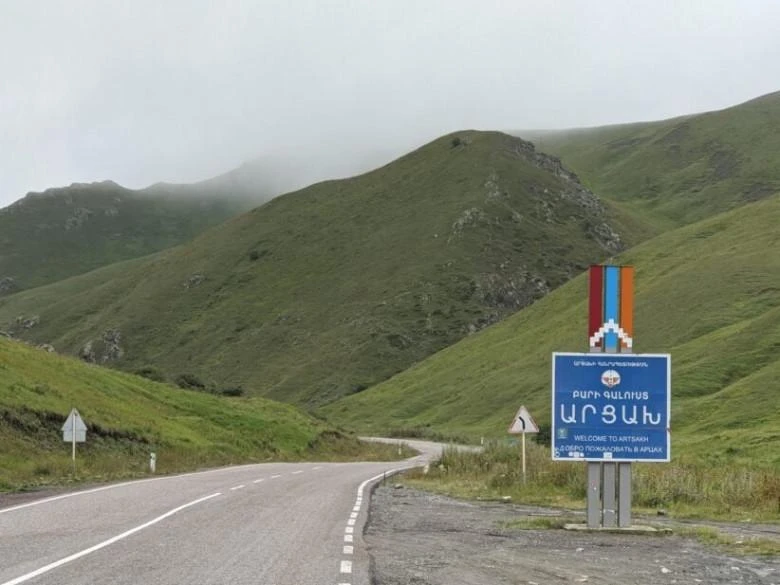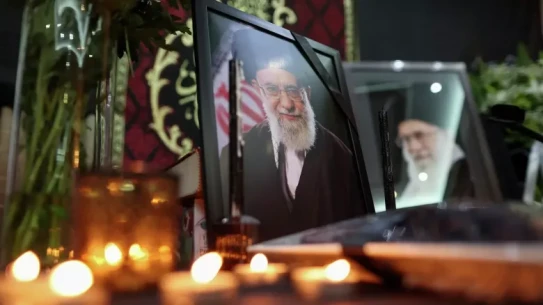"Fact" daily writes:
The topic of negotiations on Artsakh has been brought to the fore by Pashinyan in recent days, forming another fake agenda. And this despite the fact that the same Pashinyan actually recognized Azerbaijan's territorial integrity as a result of the quadrilateral declaration in October 2022, which had a crucial impact on the negotiation process as well. Since that moment, the topic of self-determination of Artsakh at the international level was practically closed. And that is such a question that has always been on the negotiation agenda.
It is no coincidence that before that, in the context of the settlement of the Artsakh conflict, the mediating countries emphasized the right to self-determination of Artsakh as a separate principle, together with the principles of non-use of force or threat of force and territorial integrity. What is interesting is that after 1994, mediators made certain proposals for the settlement of the conflict, which also reflected the concrete elements of the right to self-determination of the people of Artsakh.
It is because of this that Azerbaijan rejected the "Common State" proposal presented by mediators in 1998. At that time, the President of Azerbaijan, Heydar Aliyev, stated in connection with this proposal. "Compared to the previous proposals, it was nothing but harm to Azerbaijan. As soon as I got to know it, I said that we do not even want to discuss it. You are putting us in a situation where two states appear on the territory of Azerbaijan, one of which is Nagorno Karabakh Azerbaijan has no rights to it."
After that, there were other different proposals, including the Kazan version, which was very close to implementation. Moreover, the Kazan document talked about the intermediate status of Artsakh, the Lachin Corridor, security guarantees and free expression. If according to Pashinyan's wording, the entire negotiations were about returning Artsakh to Azerbaijan, then why did Azerbaijan reject the Kazan document at the last moment? Logic suggests that he should have accepted that offer running. And he did not accept, because he also saw the prospect of independence of Artsakh. Even after that, the parties acting as a mediator tried to propose another solution based on mutual concessions. It is no coincidence that in 2016 Ilham Aliyev announced that behind closed doors he was being pressured to recognize the independence of Artsakh. Wasn't that statement just like that? The same applies to further proposals known as the Lavrov Plan.
Moreover, 5 of the 7 territories forming the security zone would be surrendered, and the other 2 would be surrendered only when the status of Artsakh would be clarified. That is why Aliyev announced after the second Artsakh war that they did not agree with that plan either, because the 2 areas of the security zone would remain part of Artsakh forever. And there was even a case when the Russian co-chairman answered Pashinyan concretely that the issue of the status of Artsakh was on the discussion table. In other words, the facts clearly show that the issue of self-determination of Artsakh has always been on the agenda, it is another matter that Pashinyan is manipulating the issue. And it is surprising, in this case, what topic should the former presidents have to debate with a person who completely ignores the facts? In fact, Pashinyan is trying to delve into the past and open a new field for discussions, circulating theses that the negotiations were, in fact, a trade for hours.
It is also not a coincidence that Pashinyan has always put forward the point of view that during the negotiations, the Armenian side only tried to delay. But the most important question remains, what is the point of bringing up the subject again at this time? After all, the public is familiar with the views and actions of former presidents, as well as Pashinyan's words and actions. If you look at the events very carefully, it can become clear that there is a specific context behind what is happening. It should be noted that recently the demand to dissolve the Minsk Group has been much touched by the Azerbaijani side. And the RA authorities, in response, repeat every time that if a peace treaty is signed, the Minsk Group will become meaningless and cease to exist.
But the problem is that if there are provisions in that agreement that leave the Minsk Group out of the game, the public can ask the authorities why they dissolved it, if the issue of the rights and self-determination of Artsakh Armenians was raised through that format. That's why the RA authorities are always trying to generate obvious false theses with manipulation and forgeries, that the Minsk Group did not give us any benefit, it was just a trade in time, and since 1994, only the question of how Artsakh is a part of Azerbaijan has been discussed. to be returned."
ARTHUR KARAPETIAN


